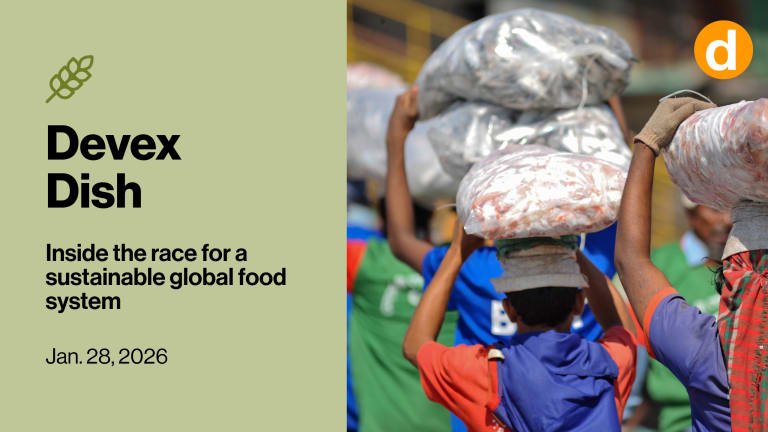
On paper — specifically the Trade Liberalization Scheme of 1975, last revised in 1993 by the Economic Community of West African States — West Africa is a free trade zone in which people and goods are supposed to move easily to other markets within the region. The reality is anything but.
West Africa’s multiple countries have yet to fully implement this agreement, so the region’s several languages, currencies and national regulations — plus opportunities to ask for bribes in exchange for speeding things up — make trade an unpredictable and costly venture for businesses of every size.
In 2010, a U.S. Agency for International Development-funded analysis identified specific gaps between written protocols and reality by country and called for action, which ECOWAS and various donor projects have tried to spur over the years.
The idea was then born for something different, the Borderless Alliance, a multistakeholder platform to advocate for freer, faster trade in West Africa. Our shared vision is the free movement of goods and people in the ECOWAS region — which means overcoming individual and regional bottlenecks and barriers to trade.
Borderless is very much a public-private partnership. Most of our funding is public — USAID, the International Finance Corp., the Japan International Cooperation Agency — but more than half of our 76 members are private companies, including household names like DHL, Nestle and Unilever, plus large and small companies from nine West African countries. Other members are organizations like shippers’ councils, chambers of commerce and national banks.
Nondonors pay membership dues, which help pay for core services, like information dissemination and participation in our regular meetings, which offer a chance to bring their issues to the table. Donors fund our public projects, like maps of unofficial checkpoints, information outlets, border information centers and tariff barrier reporting websites.
Managing these various players and uniting them around solutions starts by getting their buy in to the overall vision and finding common points of agreement. That’s easy enough from a high altitude: Companies want to spend less on bribes and have fewer delays so they can get to markets faster and do more business, governments want to reap more tax revenue from increased business, and donors want their names linked to success stories in the developing world.
We bring this regional agenda down to local issues — sometimes brought to our attention by members themselves — and put together a coalition of public and private backers.
See more from this series:
● What is Obama's development legacy?
● Pooling public-private partnership best practices
● For public-private partnerships to succeed, get beyond the definitions
● Where partnerships are taking global development
Everyone has different needs, even within the private sector. Smaller businesses ask for services like professional training for their truckers, while multinationals are more focused on systemic barriers. It means constant brokering, and it’s far from easy — I often think it’s like building an airplane and trying to fly it at the same time.
But piece by piece, we’re making progress. In Benin, national companies, banks and quasi-governmental agencies helped us convince the ministry of finance to waive its sky-high transit fees on regional agricultural commodities — a small success for advocacy but a big move for a small, tax revenue-focused country like Benin.
In Ghana, our members gave us information for a meeting with the parliamentary transport committee that prompted an investigation into and the removal of informal agents known as “Goro Boys,” who were charging illegal mediation fees to traders along the northern border. We’ve achieved breakthroughs in Niger, Ivory Coast, Benin and other countries. We have found that public officials listen and act when the private sector presents well-documented arguments and makes recommendations.
The most obvious sign of our success is the existence of border information centers, managed by former customs agents, now Borderless Alliance employees, who hand out information to traders about their rights and responsibilities — which reduces wait times and bribes — and works with border agencies to streamline clearance and crossing procedures, so that goods end up moving faster. These centers directly improve the enabling environment that affects thousands of traders crossing West Africa’s many borders every day.
Of interest to both public and private players is cost. Soft infrastructure is actually much cheaper than hard infrastructure. It cost $10 million to build a joint border post between Ghana and Togo. The Border Information Center nearby, funded by USAID and hosted by local partners, from both sides of the border, cost $65,000 the first year of operation and then $45,000 annually.
We’re encouraged by the networks we’re building, breaking away from the old hierarchical, noninclusive model for development.
Public-private partnerships are flexible, adaptable and efficient, making them more suited to address the complex, multistakeholder difficulties in advocating for regional economic integration in West Africa. We will continue marshaling invested stakeholders from across the spectrum, not just to sustain our existence, but to push through the obstacles and convince those standing in the way that freer, faster trade will allow more West Africans to prosper.
Devex, in partnership with Abt Associates, is examining lessons learned through partnership development, what scale means in the post-2015 agenda and how to create an enabling environment for partnerships in this special three-week series “Collaboration Post-2015: Where Can Partnerships Take Development?”
Join Devex to network with peers, discover talent and forge new partnerships in international development — it’s free. Then sign up for the Devex Impact newsletter to receive cutting-edge news and analysis at the intersection of business and development.








